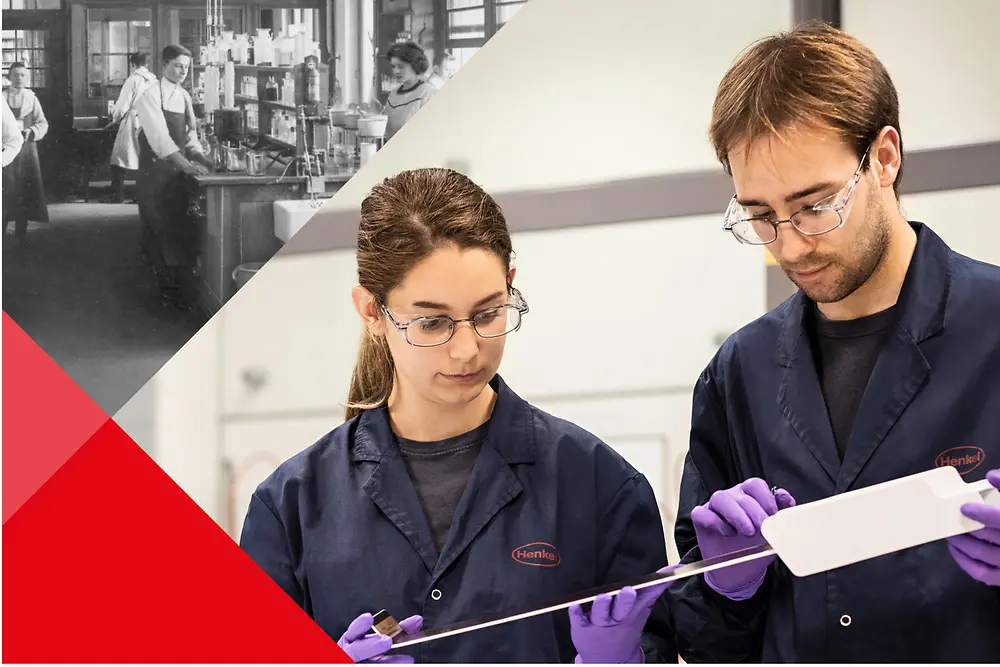Découvrez les marques et les technologies de nos unités commerciales Henkel Adhesive Technologies et Henkel Consumer Brands.
How chemistry is advancing future vehicle trends
Today, the automotive industry is witnessing history in the making on multiple fronts. Advanced Driver Assistance Systems (ADAS) are changing the very idea of the driving experience. In concert with ADAS, electric vehicles are becoming more commonplace — in fact, within just over 20 years, Bloomberg New Energy Finance predicts they will actually overtake internal combustion engines!
The notion of an electric vehicle is nothing new. In fact, the first crude electric vehicle was developed all the way back in 1832. Fast forward to today and we’re seeing all the right conditions for this market to truly take off for three key reasons:
- The cost of a kilowatt hour is coming down in a significant way. In 2010, we saw a cost of about $1,000 kilowatt hour. By 2030, that number is expected to be reduced to about $73, which will make electric vehicles much more affordable;
- Carbon dioxide emission regulations are continuing to progress, making electric vehicles more important than ever before; and
- The overall range of an electric vehicle today is about 200 to 250 miles, versus past expectations of about 60 to 70 miles.
Chemistry plays a key role in these advancements, and especially with regard ensuring battery components function at peak performance.
- Sealants ensure external elements that could harm the technology are kept out;
- Thermal management materials keep heat in check, making sure the battery is operating at an ideal temperature of between 15 and 35 degrees Celsius;
- Structural adhesives are used in cell to cell bonding to ensure the battery pack housing is securely attached and sealed;
- High-performance solders, adhesives and inks deliver reliable and responsive interconnections; and
- Threadlocking adhesives secure housings and lead frames for rugged conditions.
A lithium-ion battery or Li-ion battery is a rechargeable battery that is growing in popularity for electric vehicles. A powerful Li-Ion battery pack for today’s modern electric vehicles relies on a wide variety of technologies to ensure the best possible driving experience. Gasketing for example, prevents water, dust, moisture and salt getting into the battery pack, as well as helps minimize noise and vibration. These technologies can be applied in a variety of areas that include the battery housing, battery management system and cooling system. Structural bonding also plays a key role, since structural adhesives are an ideal replacement for mechanical fasteners within the vehicle battery, delivering several benefits, including an even distribution of stress and load across bonded joints, a permanent seal to prevent rust and corrosion through gap filling capabilities, and the benefit of bonding dissimilar substrates, such as metal to plastic. In addition, structural adhesives are nearly two times stronger than spot welds and bolts, and better able to withstand the test of time.
As one of the world’s leading adhesives producer, Henkel combines innovation, technology leadership and close customer partnership to deliver solutions that are essential to the automotive sector. Offerings include a variety of LOCTITE® liquid dispensed sealing solutions for battery packs, including:
- Formed-in-place – which provide excellent adhesion, strength, flexibility and environmental resistance;
- Cured-in-place – which applies high performance compression gaskets directly onto parts within seconds; and
- Foam gasketing – which comprises a UV/moisture-cure silicone that is injected with nitrogen to form a soft, flexible, low modulus foam gasketing for sealing applications that require high performance in demanding environments
Henkel not only provides the products but also the engineering expertise to help the customer with an application. Henkel tests the bonding and sealing of components, demonstrates how the products are dispensed and cured, and supports production start-up at the customer sites. For additional information on how advanced adhesives technologies improve battery life and long-term performance, protect critical electronics, or enable light-weighting, etc., visit henkel-adhesives.com/us.
Eugene Chung is the North American e-Mobility Business Development Manager for the Transport and Metals business at Henkel. Eugene joined Henkel in 2013 as an Applications Engineer in the Automotive Components Team. Chung received his degree in Chemistry from the University of Texas in 2011 and Executive MBA degree from Michigan State University in 2018.








